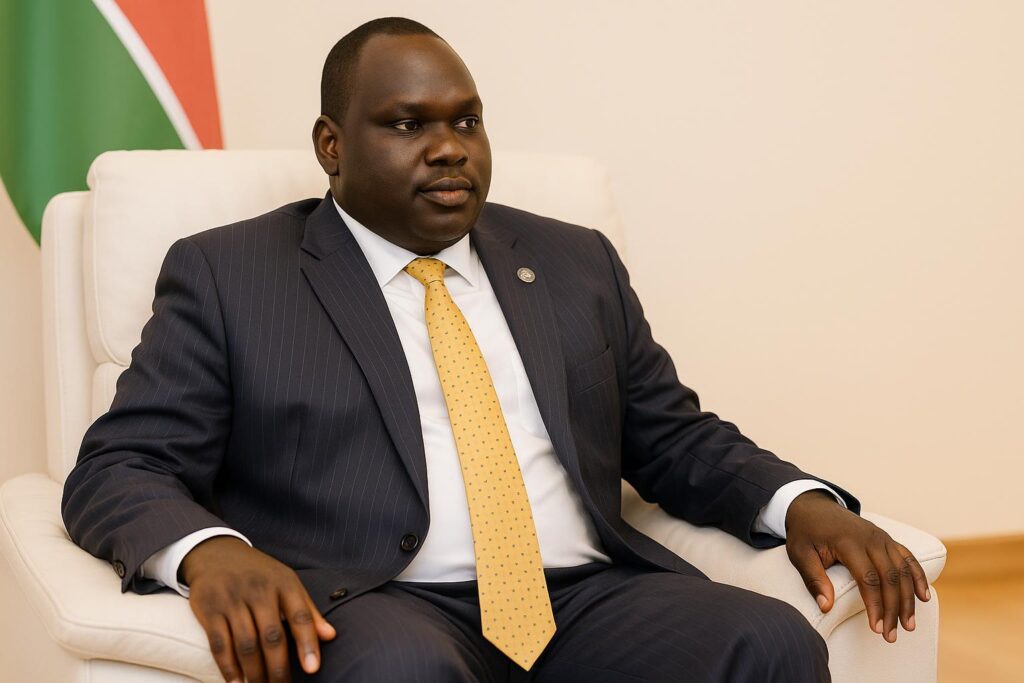Sudden Cabinet Shake-Up in Juba
President Salva Kiir announced the decree on national television on 13 August, replacing Anyak with economist Yien Chan Ruei after ten months in the post.
The order also relieved several MPs allied to First Vice-President Dr Riek Machar, sparking swift protests from the SPLM-IO wing that labelled it a breach of the Revitalised Peace Agreement.
Anyak’s Ten-Month Track Record
During his brief tenure, the ministry piloted a cash-management dashboard, trimmed arrears and launched weekly revenue disclosures that civil-society observers called an “important stride toward transparency” (CEPO report, July 2025).
Anyak argued that stricter payroll audits and prioritised salary payments helped stabilise public morale amid economic headwinds caused by fluctuating oil receipts.
Political Reverberations Across SPLM-IO
SPLM-IO spokesperson Lam Paul Gabriel termed the sackings “politically selective”, yet insisted the movement remains committed to dialogue.
Independent analyst Edmund Yakani warned that perceptions of exclusion could slow the peace roadmap, but added that “institutional continuity inside the finance ministry is still achievable if technocrats stay the course.”
Looking Ahead for Fiscal Policy
Incoming deputy minister Ruei is expected to finalise the long-awaited Public Financial Management Bill and steer talks with the IMF on a fresh staff-monitored programme.
In his handover note, Anyak pledged cooperation, describing leadership as “a relay, not a race,” and urged Ruei to leverage existing systems and donor goodwill.
Voices of Optimism Amid Transition
Some business groups, including the Chamber of Commerce, said continuity in reforms could improve investor sentiment, while civil servants welcomed the assurance that salary backlogs remain a top priority.
For now, Juba watches closely, hoping that a smooth baton pass keeps the treasury’s modest gains on track and, ultimately, eases daily hardships for ordinary South Sudanese.


